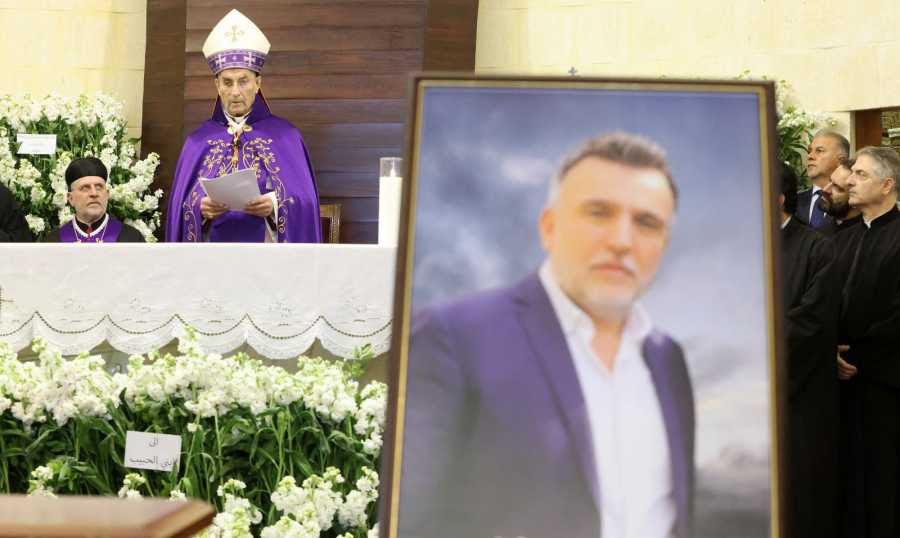Patriarch Al-Rahi at Sleiman's funeral asks who ‘benefits from this chaos’
Tensions are rising following the murder of a member of the Lebanese Forces, and a Hezbollah banker. In Lebanon people are bracing for any fallout from a clash between Israel and Iran after Israel bombed the Iranian consulate in Damascus. The head of the Maronite Church warns that the “absence of a president has fostered [. . .] the proliferation of weapons.” Geagea promises a "long" but "democratic" showdown.
Beirut (AsiaNews) – The prospects for a major escalation between Israel and Hamas, on the one hand, and Israel and Hezbollah on the other, are growing.
The embassies of France and Russia have asked their citizens to avoid travelling to Lebanon, Israel, the Palestinian Territories, and Syria.
This comes as Iran threatens to strike Israel, which blames for an attack 1 April against its consulate in Damascus.
In addition, two crimes in Lebanon have left local observers wondering about possible civil strife in a country deeply divided over Hezbollah’s possible opening a "front of support" for Hamas on its southern border.
The two incidents are the abduction and assassination of Pascal Sleiman, the head of the Lebanese Forces party in the Jbeil region, and the murder in Beit Mery (east of Beirut) of Mohammad Srour, a Hezbollah banker.
Kidnapped last Sunday and found dead on Monday in Syria, Pascal Sleiman was buried yesterday in his village of Mayfouk (Jbeil).
The Maronite Patriarch Bechara Al-Rahi led the funeral service at St George’s Church in Jbeil, thus underlining the seriousness of a tragedy that the Lebanese Forces consider "a political crime, until proven otherwise".
On Tuesday Mohammad Srour, a banker under US sanctions for moving funds from Iran to Hamas, was found dead, shot at least five times, in a villa in Beit Mery, a town overlooking Beirut.
The perpetrators of the crime did not take any money that was on him; for Srour's family, the crime was planned.
Speaking about Sleiman’s death, Archbishop Al-Rahi lamented the fact that “the crime was committed by displaced Syrians that Lebanon had welcomed in all humanity, while some of them act without any humanity and now constitute a threat to the Lebanese.”
He did not hold back tears as he mentioned the words of faith and hope spoken by the victim’s wife when she heard the news of his death.
Stressing that "the absence of a president has fostered chaos and the proliferation of weapons," the head of the Maronite Church wondered which side "benefits from this chaos, while the decision of war and peace is not in the hands of the state."
Geagea: "It's going to be a long showdown"
"Don't bet on our desperation," Samir Geagea told supporters gathered outside the church.
Addressing the crowd on a giant screen from his headquarters in Meerab, Geagea said: “Where do we go from here? The answer is simple: in case of danger, we are here, we are the Lebanese Forces. The showdown continues. It will be a long one. Because real solutions take time.”
Geagea said the fight would be "democratic" and exclude “any desire for revenge," while the look on the faces of his supporters betrayed no emotions.
For his part, journalist Mohammed Barakat does not rule out a Mossad provocation aimed at provoking civil unrest between Lebanese Christians and Shias.
"The two crimes seem to be planned to pit one group against the other," he said, and the claim that Pascal Sleiman's was done in by Hezbollah was designed to mislead Hezbollah.
The journalist, who believes in the assassination theory, says, with data to back him up, that "car thieves are not killers”. In his view, while the perpetrators of this crime disguised as a car theft are Syrian, their sponsors are not.
So far, the Lebanese army has arrested four Syrians in connection with the case.







.png)










